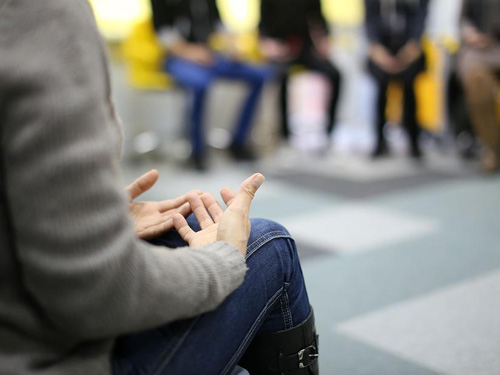
Among family, personal issues do not stay personal for long. Individual sources of stress, emotional tension, and frustration can very quickly and easily escalate into something that impacts the entire family–whether or not they even know the source of the trouble. Financial stress, a substance abuse problem, chronic illness, disability–these all can blur the line between personal challenges and issues that impact the entire family.
We Need to Talk
Sources of individual stress escalate into shared issues among family members in part due to poor communication.1 For example, when one sibling has a disability that requires special attention from the parents, other siblings may feel neglected or ignored; feelings of envy or jealousy toward this special attention can manifest as behavioral trouble at school and angry outbursts at home.2 On the other hand, these feelings may cause a sense of guilt instead, leading to depression and withdrawal.1
Clearly, without communication, one child’s emotional challenges can grow into a variety of behavioral problems that affect many more people than the individual; without an opportunity to express these feelings, contributing factors might never even be properly identified. Individual therapy often begins with the counselor helping the patient to increase self awareness. In family counseling settings, the counselor must also help the different family members to listen to one another.1
Family counselors may provide the environment and listening ear necessary to begin the healing process, but another critical element of therapy is teaching communication skills to the whole family. That means helping each person learn to express their feelings in words, as well as encouraging others to listen and look past the behaviors to understand contributing factors.
The importance of communication is not limited to unveiling the cause of family tensions. Adults in particular may be aware of the source of their stress, but unaware of how they are affecting family members through their own behavior–or even that they are behaving inappropriately.3 Financial trouble is one of the most common sources of conflict and anxiety. Adults may communicate effectively with one another, but fail to do so with their children. This can lead to confrontations, angry outbursts, and punishment that, as far as the kids are concerned, comes out of nowhere.
Family counseling can create a starting point for each member of the family to describe what they see, how they feel, and what unconscious messages are being shared through behavior. Talk therapy can be helpful, but counselors are also trained to help patients understand nonverbal communication, and develop an awareness of how their actions may send a different signal than their words at home.1
A Burden Shared
Families that have experienced a shared trauma may have no trouble recognizing the source of their mutual distress. Surviving a natural disaster, mourning the death of a friend or relation, and other obvious traumas can be effectively managed through family counseling. However, the need for such therapy is not always as obvious.2
In cases where one member has a substance abuse problem, it is typical for every member of the family to be profoundly affected in different ways. While there is a clear need to treat the substance abuse problem, it may only be the beginning of the family’s road to recovery. Family counseling may also be necessary to help everyone communicate throughout the rehabilitative process.1
Counselors can help the family of someone with a substance abuse problem develop communication skills that enable them to support one another throughout their collective journey to recovery, and unlearn the coping methods they used to deal with the substance abuse. Better communication can create a healthier environment for everyone to develop different habits and intervene earlier when warning signs become apparent.3
A family that is able to open up to one another, describe their emotions and explain how they are affected, and generally support one another through listening and sharing, are better able to deal with any challenges. Unfortunately, not all families–or individual family members–have the communication skills necessary to take this step toward healing. This is where the job of a family counselor is not limited to therapy sessions, as he or she may help teach the communication skills clients need to develop.1 By earning your Master of the Arts in Counseling, you are preparing yourself to become effective in counseling families. By teaching life skills you can help individuals and families improve communication, develop hope, and support one another.
Sources:
1: https://www.mayoclinic.org/tests-procedures/family-therapy/basics/definition/prc-20014423
2: https://www.goodtherapy.org/learn-about-therapy/issues/family-problems
3: http://www.bhevolution.org/public/effective_communication.page
